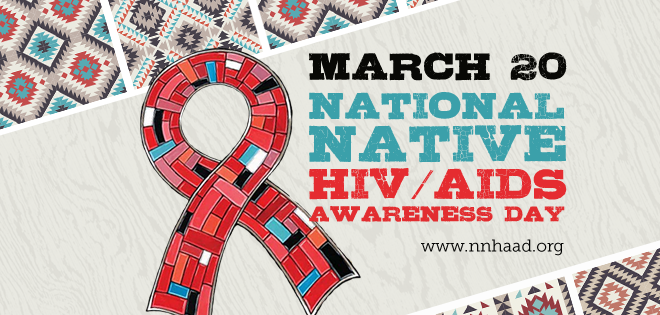The following post is from Zach Ford, Program Manager at AIDS United.
On this National Native HIV/AIDS Awareness Day (NNHAAD)—which is observed March 20, the first day of spring—I’d like to highlight the critical work of two Syringe Access Fund grantees: Bad River and Red Cliff Bands of Lake Superior Chippewa Indians. Both operate syringe services programs in Wisconsin.
The opioid and HIV epidemics, two of the most pressing public health challenges of our time, are increasingly intertwined. Used syringes result in somewhere between 3,000 and 5,000 new cases of HIV and approximately 10,000 new cases of hepatitis C in the United States each year. According to the CDC, injection drug use accounted for 31% and 9% of HIV transmissions among American Indian and Alaska Native women and men, respectively, in 2016. Access to quality, affirming HIV care, free of stigma is critical for all communities, but especially American Indian and Alaska Native; according to the Indian Health Service, as many as 26% of American Indian and Alaska Native people living with HIV don’t know their status.
Syringe services programs are a proven and cost-effective tool for preventing HIV and viral hepatitis, while also providing people who inject drugs with sterile equipment, overdose prevention education, and related health messaging needed to reduce the potential harms of injecting drugs and improve their overall health. Too frequently, these services are the only link many people who inject drugs have to health care and/or substance use treatment programs, as well as other public health, medical, and social services. By disposing safely of used needles, syringe services programs also provide a service to the larger communities in which they operate, potentially reducing the risk of “accidental sticks” for local sanitation workers, police, and other members of the community.
The services provided by the Bad River and Red Cliff Bands of Lake Superior Chippewa Indians are life-affirming and live-saving for communities whose health care systems are woefully underfunded. Their services include syringe exchange, wound care, screenings for HIV and viral hepatitis, overdose prevention, and more. But most importantly, they provide non-stigmatizing, harm reduction support to people who use drugs.








Comments
Comments